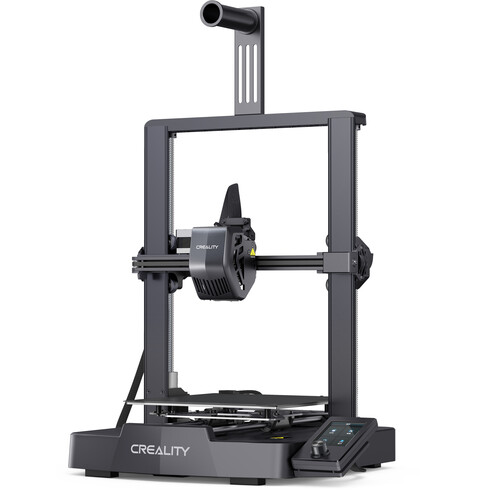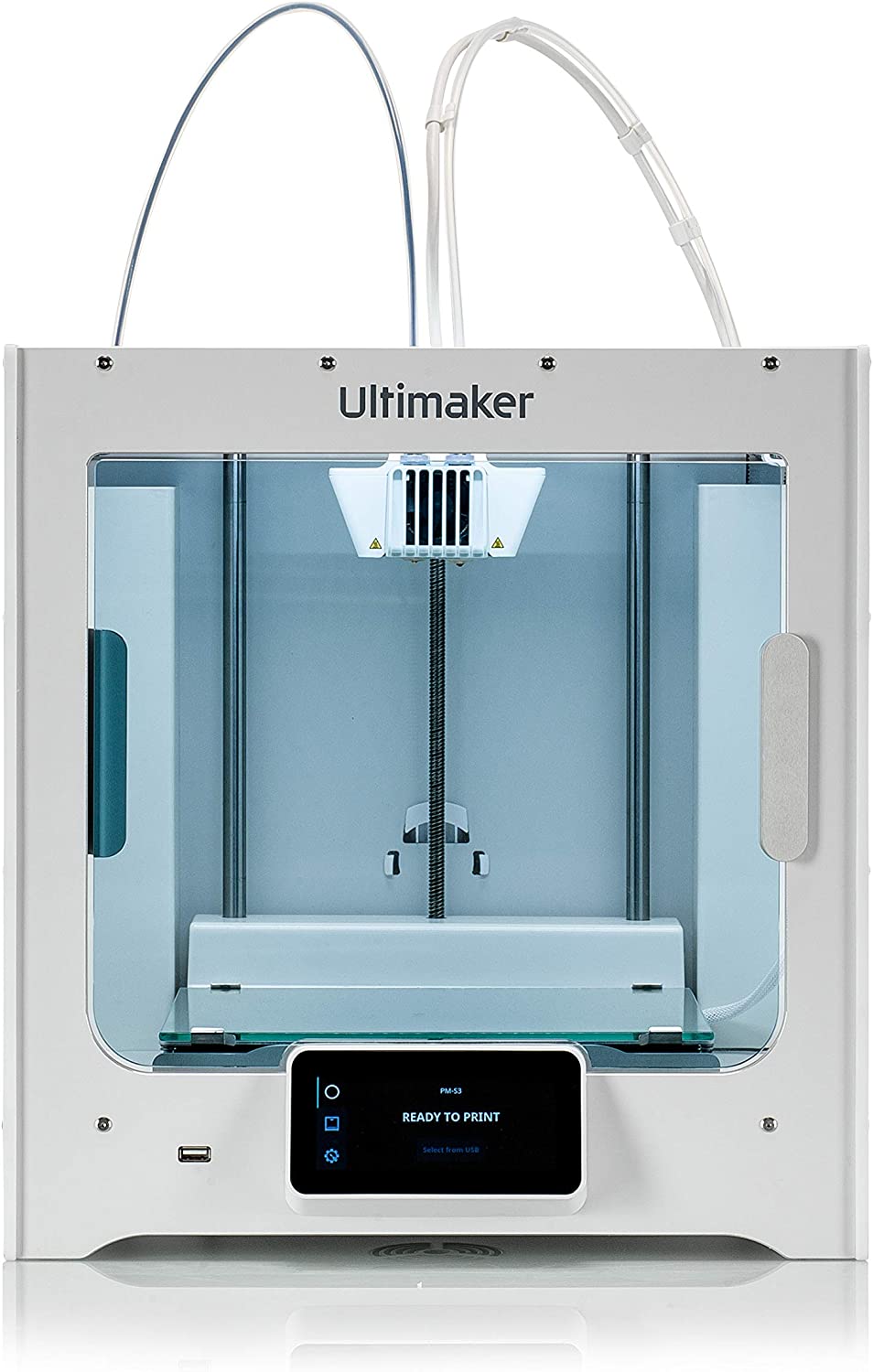Compare Ender 3 V3 SE vs S5
Comparison between the best 3D printers
Choose the best 3D printer at the best price. The cheapest 3D printers are here.
Buy a 3D printer here with 3D Fila.
 |
 |
|
| Model | Ender 3 V3 SE[BUY Ender 3 V3 SE] |
S5 |
| Printing Material | Filament | Filament |
| Buy Filament for Creality Ender 3 V3 SE | Buy Filament forUltimaker S5 | |
| Estimated price | $199,00 | $6950,00 |
| Manufacturer | Creality | Ultimaker |
| Release Year | 2023 | 2021 |
| Print Volume [mm] | 220x220x250 | 330x340x300 |
| Printer Size [mm] | 420x366x490 | 495x585x780 |
| Weight [kg] | 7,34 | 20,6 |
| Power Loss Recovery | NO | YES |
| Enclosed printer | NO | YES |
| Bed Leveling | Automatic | Automatic |
| Filament End Sensor | NO | YES |
| Bed type | Heated | Heated |
| Power supply system | Direct Drive | Bowden |
| Standard nozzle | 0,4 | 0,4 |
| Maximum Nozzle Temperature [°C] | 260 | 280 |
| Maximum Bed Temperature [°C] | 100 | 140 |
| Maximum printing speed [mm/s] | 250 | 80 |
| Filament holder | YES | YES |
| Camera for supervision | NO | NO |
| Recommended filaments | PLA, PETG e TPU (95A+) | PLA, ABS, PETG, PC, Nylon, Tritan |
| Recommended slicers | Creality Print, Cura 5.0 ou superior, Prusa Slicer, Orca | Cura |
| Maximum Resolution [mm] | 0,1 | 0,1 |
| Processor | 32-bit Silenciosa | |
| Display | 3,2'' + Knob | Display touchscreen 4,7'' |
| Power Supply | 350 W | 110/220V / 500W |
| Connectivity | SD | USB / Wi-Fi |
| Operating systems | Windows, Linux, Macbook | Windows, Mac, Linux |
| Date of registration in the system | 2024-03-06 | 2022-11-08 |
| Release date | 2023 | 2021 |
| Extra features | The Ender 3 V3 SE stands out for its easy assembly, excellent automatic bed leveling, direct extrusion and easy interface, ideal for beginners. Although it uses a coated PC board, it offers robust performance, with print speeds of up to 250mm/s, thanks to a solid construction and linear rods on the Y axis. It lacks Wi-Fi, preferring file transfer via SD card. | The Ultimaker S5 stands out for its easy loading and unloading of materials, automatic bed leveling and excellent print quality with resolutions from 60 to 400 microns. It has dual extruders, interchangeable print cores, advanced connectivity with Wi-Fi and LAN, and intuitive software. It includes a Wi-Fi camera for monitoring, a removable glass bed, and a large build volume, making it ideal for professional and creative environments. |
| Support for multiple colors and materials (AMS and CFS) | NO | NO |
Notes * |
||
| Cost-benefit | 7 / 10 | 2 / 10 |
| Hardware | 0.7 / 10 | 3 / 10 |
| Tela | . | . |
| Print volume | 3 / 10 | 4 / 10 |
| Performance | 2 / 10 | 1 / 10 |
| [BUY Ender 3 V3 SE] |
Conclusion |
| In comparing the Ender 3 V3 SE and the Ultimaker S5, a clear divergence in target users and capabilities emerges. The Ender 3 V3 SE, positioned as a budget-friendly option, excels in offering an accessible entry point for beginners. Its user-friendly assembly, lightweight design, and relatively high print speed make it an attractive choice for hobbyists and casual users seeking cost-effective 3D printing. On the other hand, the Ultimaker S5 caters to advanced users and professionals, delivering significantly larger print volumes and a host of features that justify its premium price. With automatic bed leveling, dual extruders, advanced connectivity options, and superior print quality, it is well-suited for more demanding applications and creative projects that require flexibility in materials and precision. From a cost-benefit perspective, the Ender 3 V3 SE scores much higher, making it an excellent choice for those prioritizing affordability without sacrificing essential features. In contrast, the Ultimaker S5, while offering exceptional performance and versatility, comes with a much steeper investment, thereby limiting its accessibility to a narrower user base. In conclusion, for beginners or those on a budget, the Ender 3 V3 SE represents the best value without overwhelming features. Conversely, for professionals in need of advanced capabilities and a guarantee of high-quality output, the Ultimaker S5 stands as a compelling, albeit significantly pricier, option. Thus, the selection between these two models ultimately hinges on the user's specific needs, application demands, and budget considerations. |

